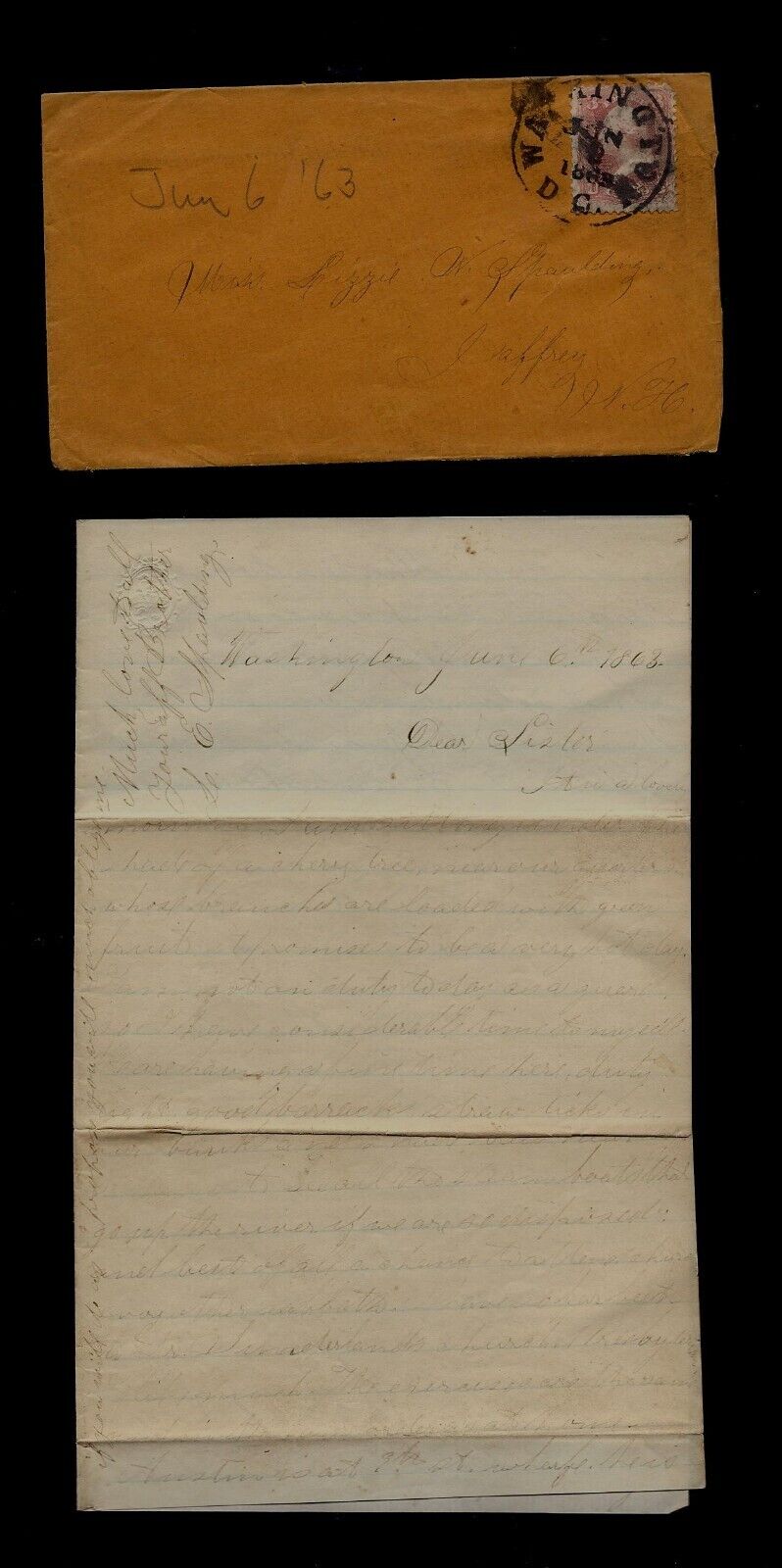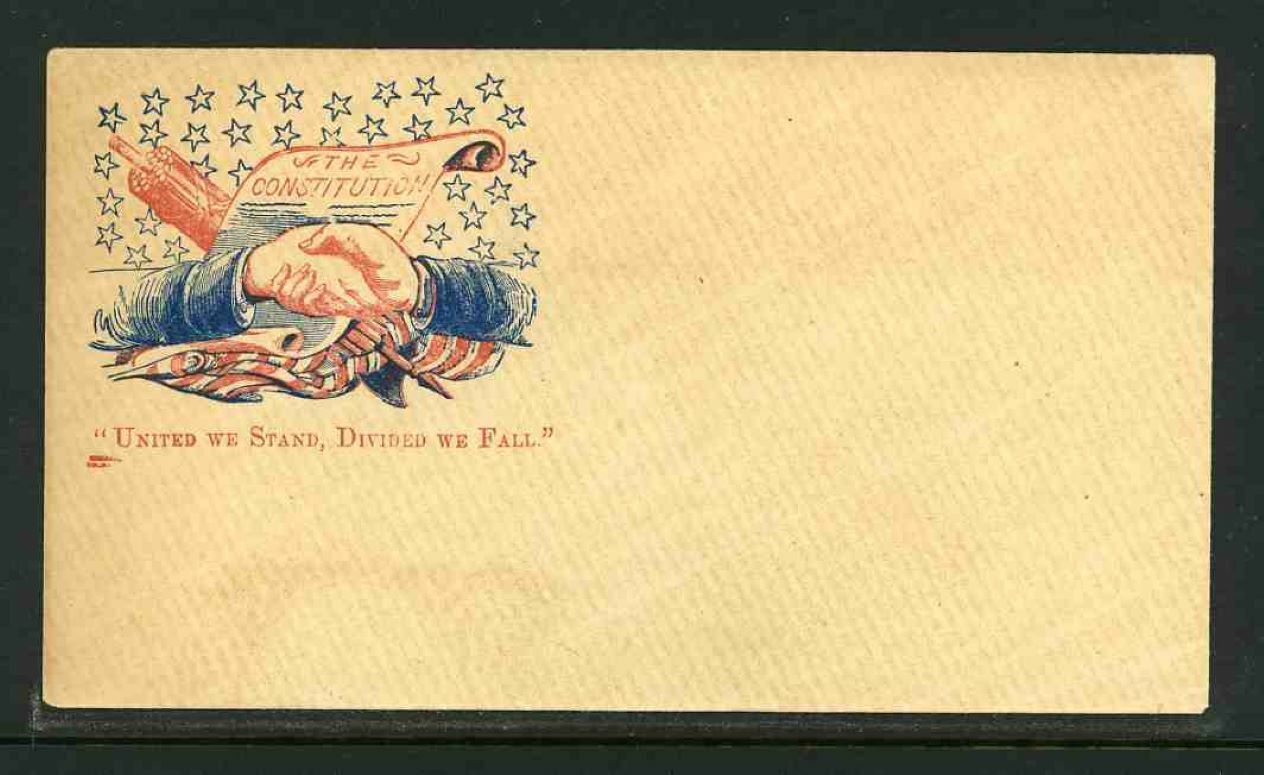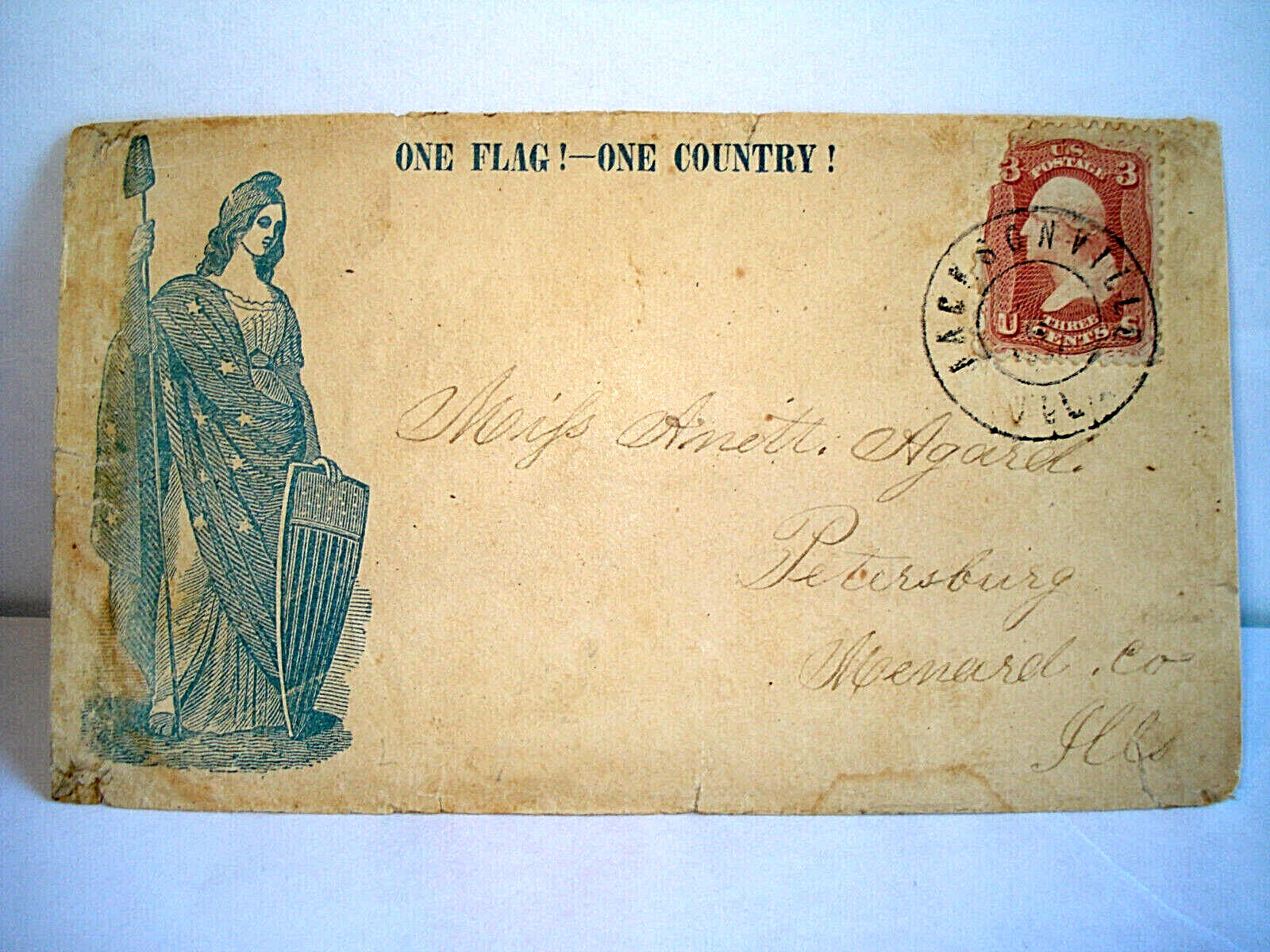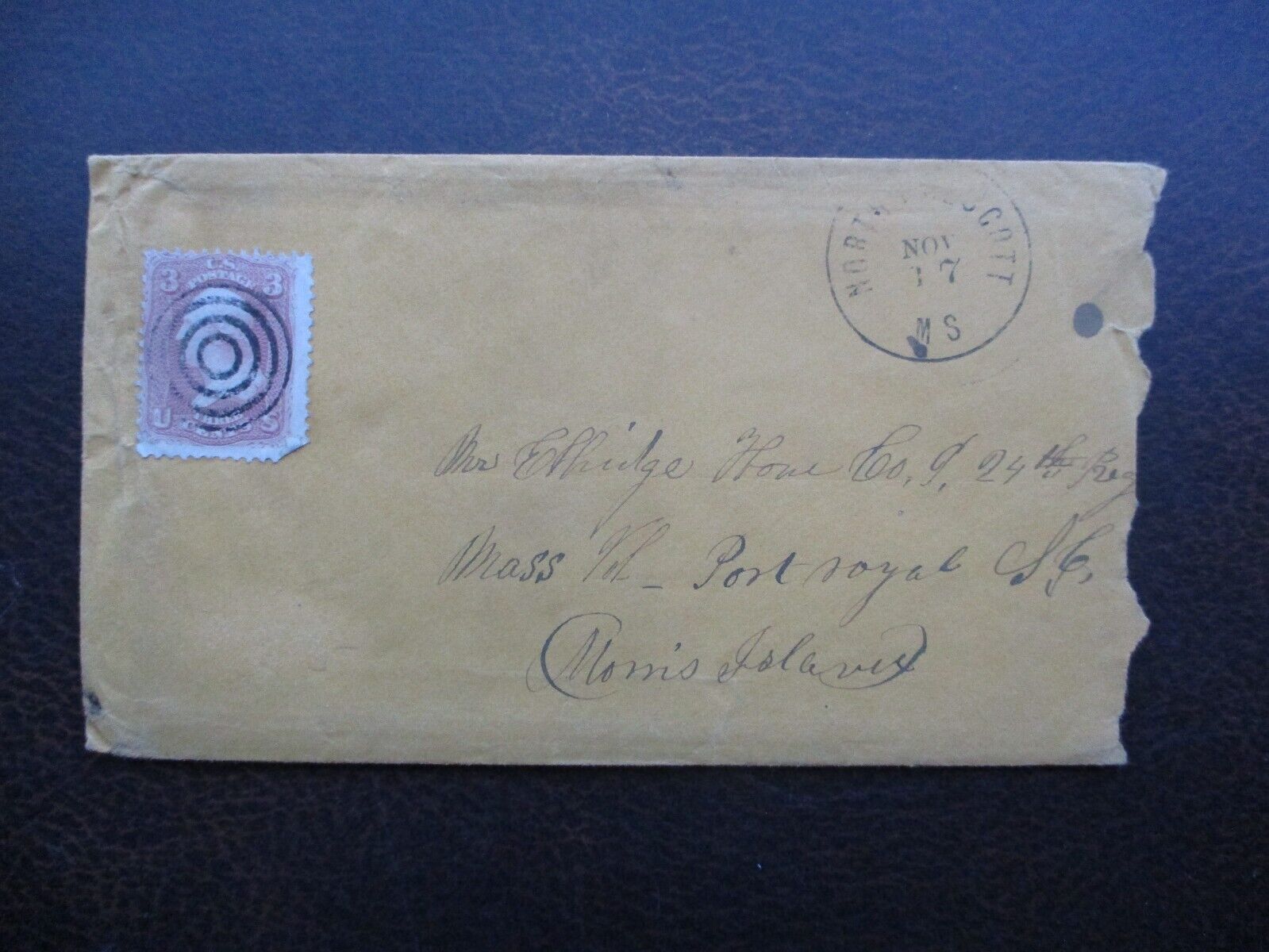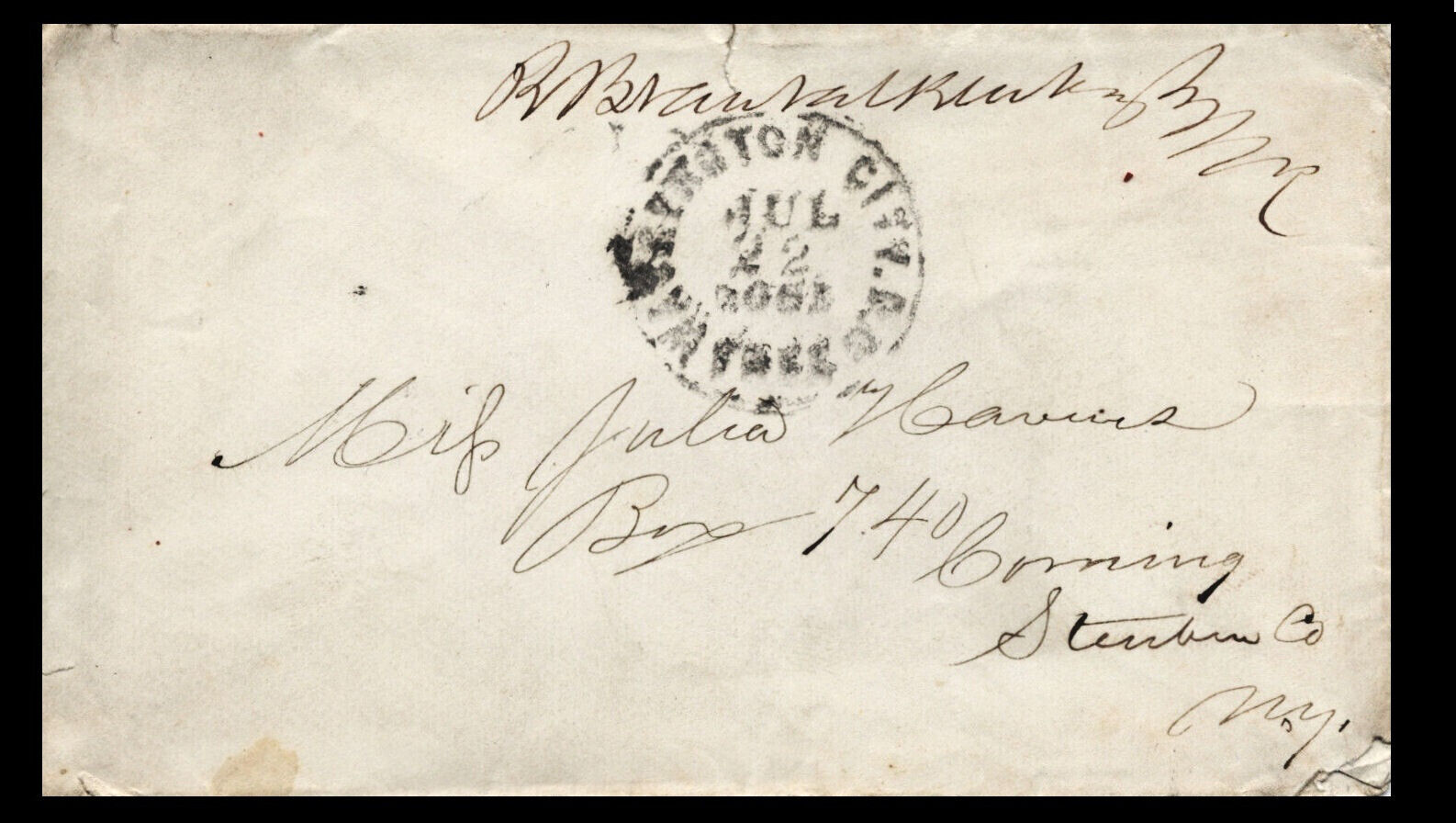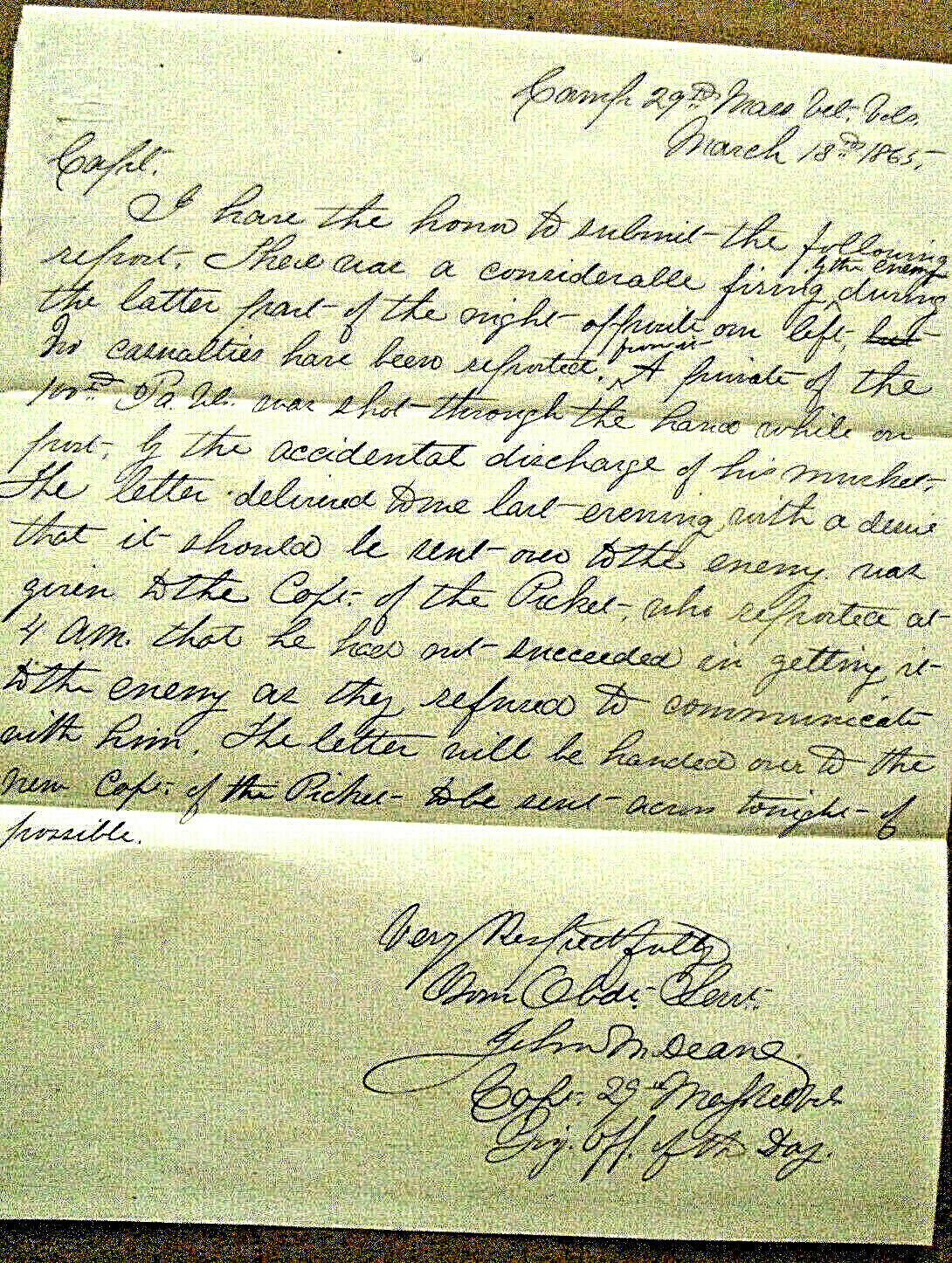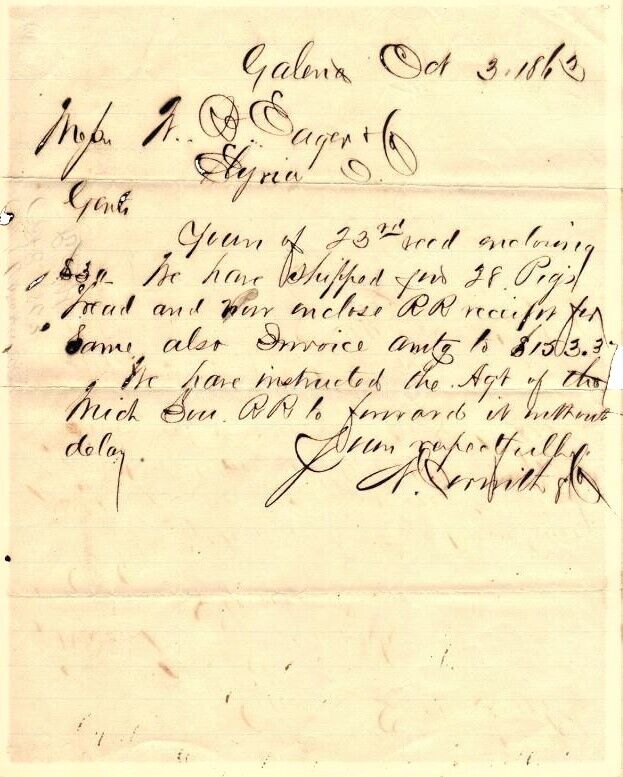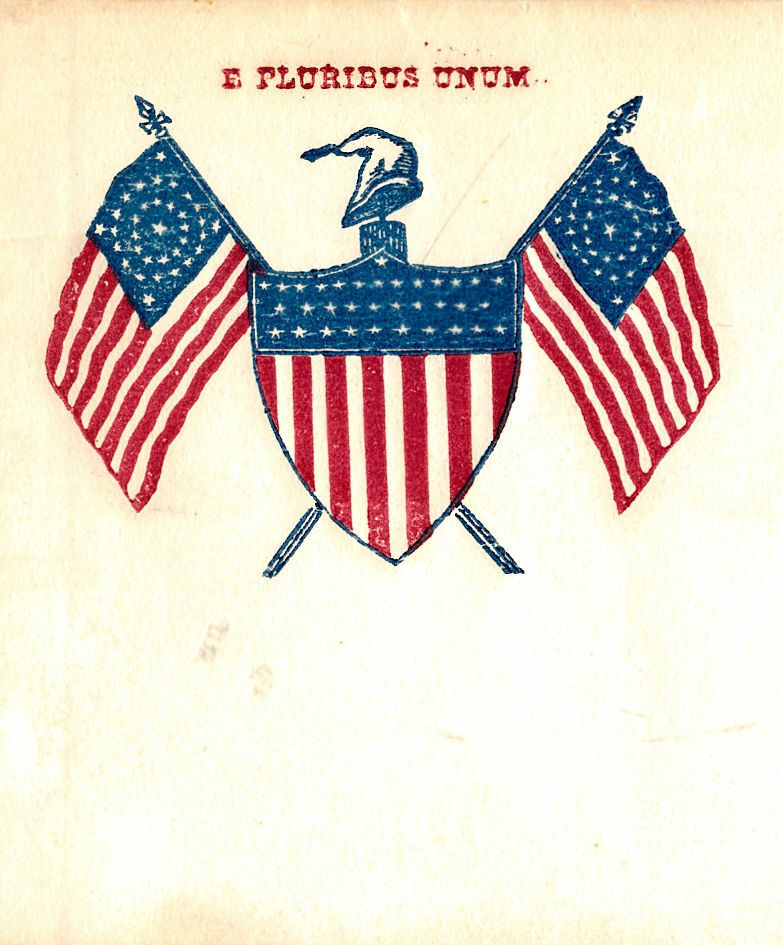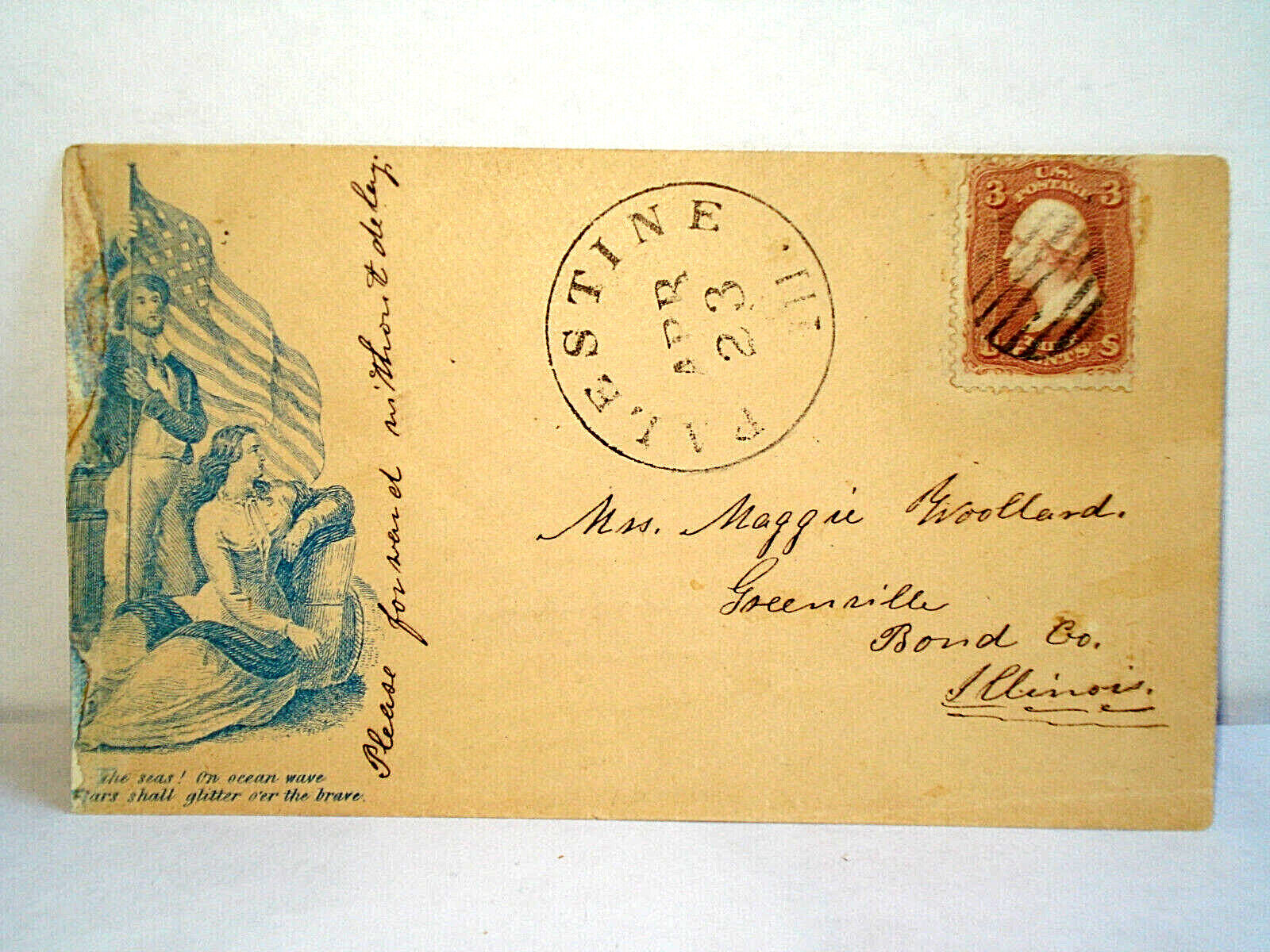-40%
CIVIL WAR LETTER - 14th NH Infantry - Describes Steamboats on Potomac River Etc.
$ 21.64
- Description
- Size Guide
Description
Civil War LetterCivil War Letter written by Leonard Spaulding of Company G, 14th New Hampshire Infantry who writes from the Washington DC area - he writes from the shade of a fruit-laden cherry tree and describes the steamboats in view on the Potomac River!
.
This Civil War soldier letter was written by Leonard Erastus Spaulding (1840-1915), the son of Richard Spaulding (1804-1883) and Nancy French (1811-1856) of Jaffrey, Cheshire county, New Hampshire. After Leonard’s mother died in 1856, his father remarried to Elvira Stratton.
Leonard and his younger brother, Austin Able Spaulding (1843-1925) both enlisted in Co. G, 14th New Hampshire, in August 1862. Leonard was enrolled as a private while Austin was enrolled as a musician. Both soldiers survived the war and mustered out with the regiment but Austin was wounded on 19 September 1864 in the 3rd Battle of Winchester.
After the regiment was mustered in at Concord, it was sent in October 1862, to Washington, D. C., where it camped on East Capitol Hill before establishing winter quarters at Poolesville, Maryland. From November 1862 to April 1863, the 14th NH served picket duty along the upper Potomac River. In April 1863, the regiment moved its quarters to Camp Adirondack, in northeast Washington D.C. From April 1863 to the end of the year, the 14th NH performed guard duty at Old Capitol Prison, transporting prisoners and deserters, and at the Navy Yard Bridge (Benning’s Bridge). In early 1864, the 14th NH briefly performed picket duty in the Shenandoah Valley.
The regiment returned to New Hampshire to vote in the spring elections which were heavily contested. On March 16, 1864, the 14th N.H. departed for Louisiana to participate in the Red River Campaign, but arrived after it had ended. The regiment served at Camp Parapet, Carrollton, and Jefferson City until June 1864, when they returned to Virginia. The 14th served at Fortress Monroe and Berryville in Virginia until the end of July 1864. From August to December 1864, the regiment was part of General Sheridan’s Army of the Shenandoah, and participated in the Third Battle of Winchester, on September 19, 1864, with heavy losses at the Battle of Fisher’s Hill on September 22, 1864, and the Battle of Cedar Creek on October 19, 1864. Sergeant Major J. Henry Jenks, from Keene, New Hampshire, was the last man from this unit to fall in battle on October 19, 1864, in the Battle of Cedar Creek. At the conclusion of the Civil War, the 14th NH was stationed near Augusta and Savannah, Georgia. On July 8, 1865, the 14th New Hampshire Volunteer Regiment was mustered out in Savannah.
TRANSCRIPTION
Washington
June 6th 1863
Dear Sister,
It is a lovely morning. I am sitting under the shade of a cherry tree near our quarters whose branches are loaded with green fruit. It promises to be a very hot day. We are not on duty today as a guard so I have considerable time to myself, We are having a fine time here—duty light, good barracks, straw ticks in our bunks and shade trees nearby. We can see all the steamboats that go up the river if we are so disposed and best of all, a chance to attend a church every other Sabbath. I have been to Dr. Sunderland’s Church, 1st Presbyterian, [which] I like much. The exercises are the same and in the same order as at home. Austin is at the 9th Street Wharf. He is in better health than he has been till of late. I wish he was with me. His quarters—though not the worst—are not so good as ours. Tuesday Mr. Stoughton of New York made a short call and I went with him to Austin’s quarters. He said Edwin was in good health.
The weather is very warm and dry. It is now just the right time to look after the apples tree borers. I am afraid Father will not have time to look after them as much as they need. I know he must be hard pressed with work. I am going to try and strike a bargain with you to see that the young trees are not left to being [damaged] by borers. I think you might examine them and destroy the young worms. It is easy work and the future productiveness of the orchard must in a few years be settled by the care that is bestowed on the young trees. There are about 100 young grafted trees which I have succeeded in keeping the borers out of by killing them while they were small and many others which had been so injured before I took them in hand that they are nearly worthless. I feel anxious to know that these trees are properly cared for—not only on account of their value on the farm, but on account of the associations connected with them. Mother used often to help me and teach me how to care for the trees that Father had grafted. The cluster of trees on the east side hill where the muskmelons—as we used to call them—grow has been the ones witnessed her endeavoring to teach me how to find the borers and to prune the tops of the trees….. I want you to look the young trees over as soon as you find it convenient if you feel disposed and keep account of the time you spend and I will pay you 7 cents per day of 10 hours labor for the time you find it necessary to work on them. I will enclose for you to work out this way, not that I think you would want me to pay you for it, but because I should like to do it and it will help me to calculate the cost of that part of apple tree culture. I spend a good deal of time in reading agricultural papers. All the boys have papers sent to them and many of them are of this class. I spend much thought on the different modes of cultivation practices among our farmers and in comparing the results as they are reported at the farmer’s clubs. I think that time thus employed is much better spent than when spent in reading novels or playing cards or visiting theaters as most of our soldiers are inclined to do. If I could have the money spent by our company even for that which to say the least does no good, I could find means to curry us quite a farm, even if I hired all the work done.
Much love to all. Your affectionate brother, — L. E. Spaulding
TERMS:
.00 postage in the United States. We accept Paypal.
Postage combined for multiple purchases. Please wait for me to send the invoice, otherwise you will pay a higher rate.
For International buyers, we utilize eBay’s Global Shipping Program. We had too many packages sent via the post office go missing. So we believe this program will be safer for us and for you.
We are members of the American Philatelic Society, the U.S. Philatelic Classics Society, the Confederate Stamp Alliance and the Illinois Postal History Society.
We only sell genuine, original letters (no copies or reproductions). Some of our letters have been transcribed and nicely presented for future genealogists and history buffs on the Spared & Shared blog.
We have been selling on eBay since 1998. BID WITH CONFIDENCE !
